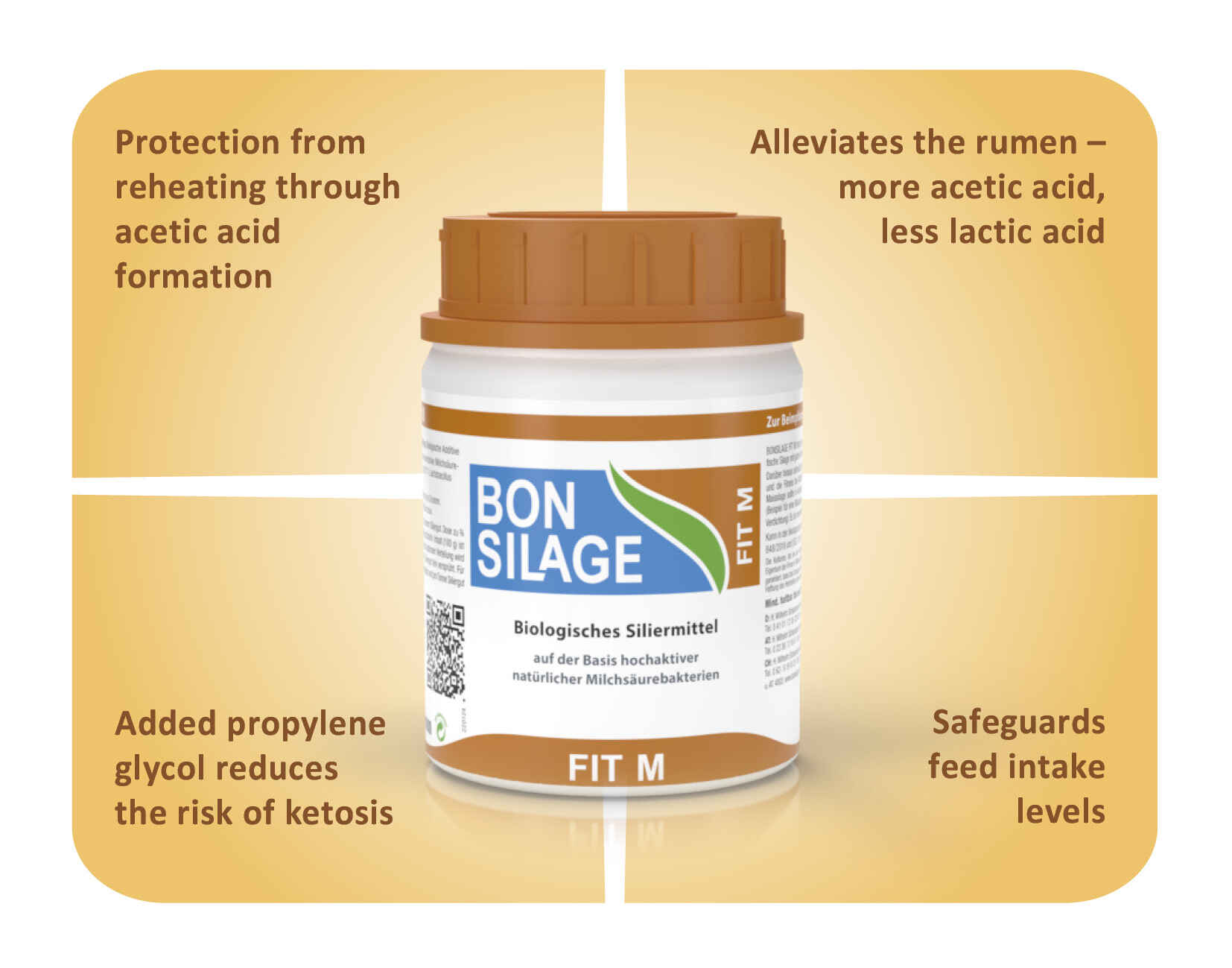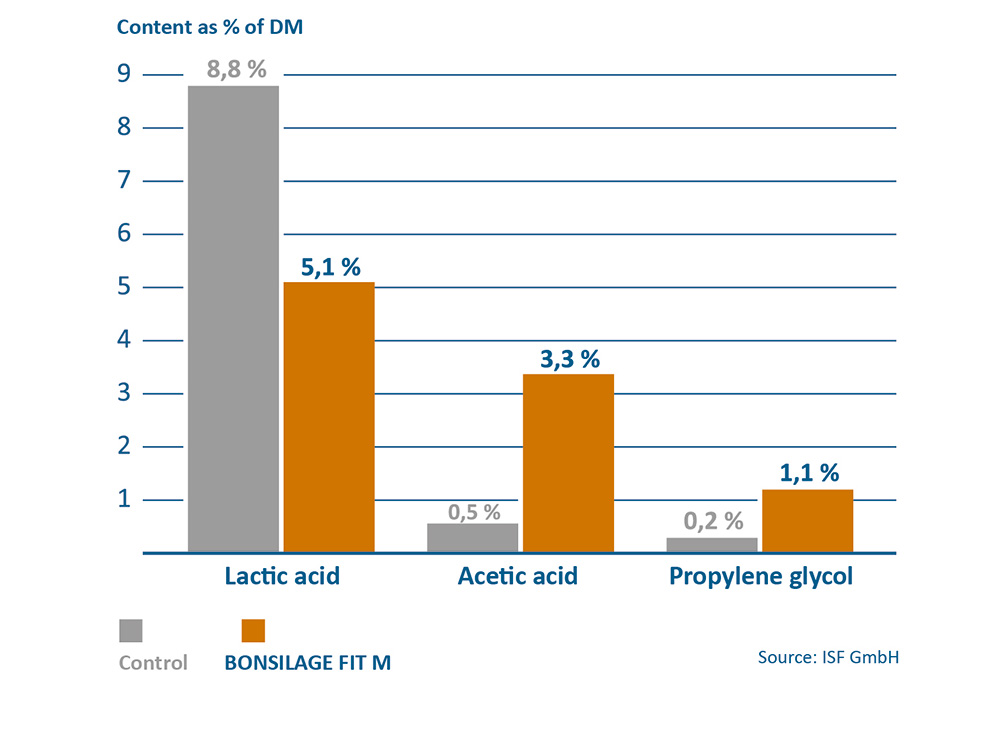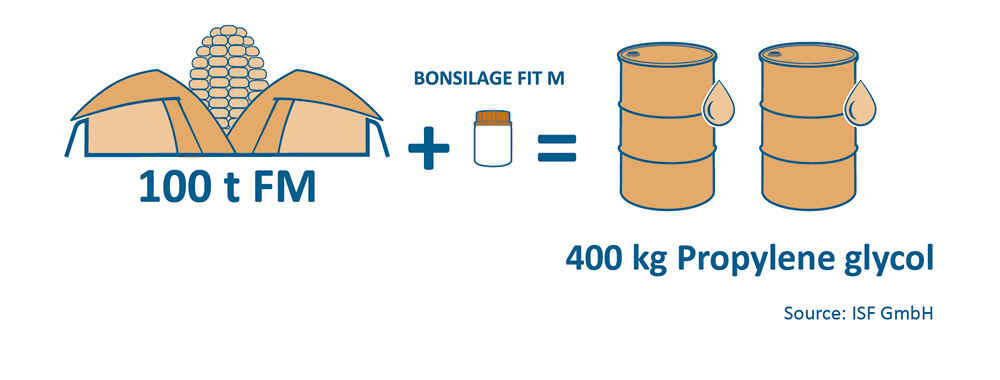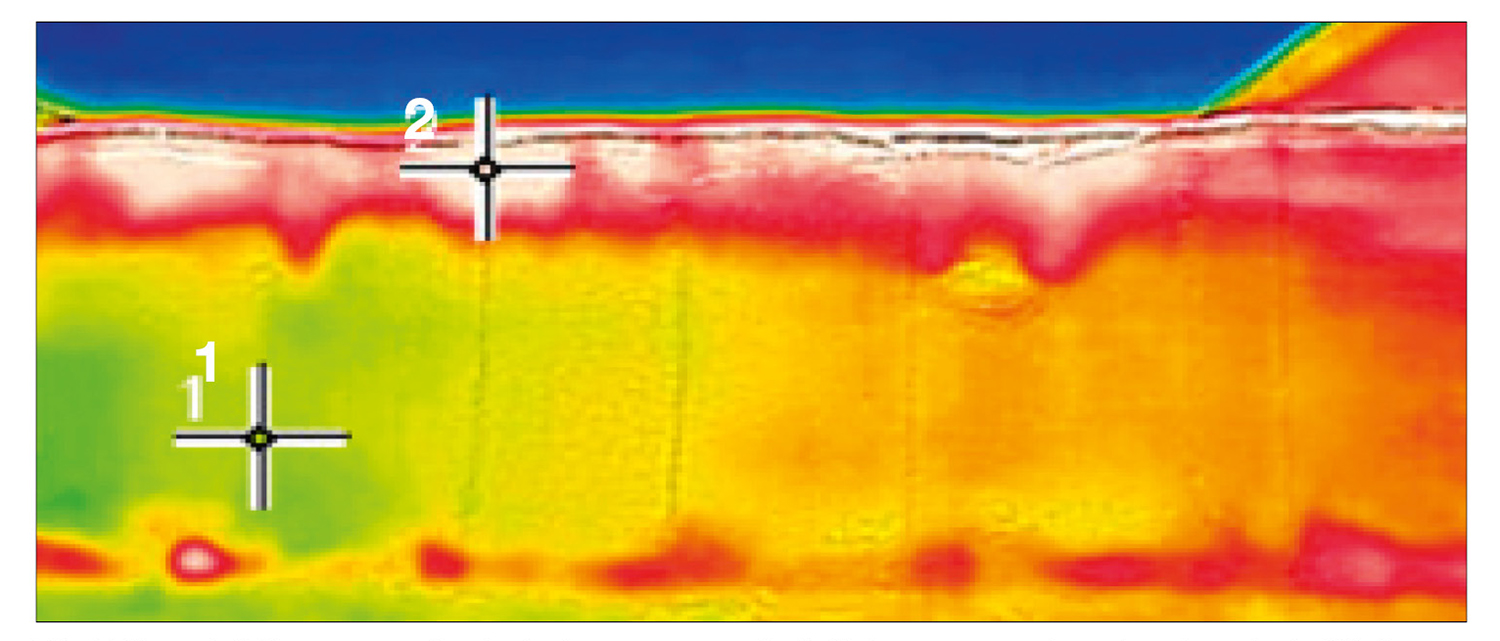BONSILAGE FIT M more cow fitness and stability in maize silage

© SCHAUMANN
BONSILAGE FIT M
The silage additive BONSILAGE FIT M reduces the risk of reheating in maize silage by shifting the fermentation acid pattern towards more acetic acid and less lactic acid with the simultaneous formation of propylene glycol. The extra portion of propylene glycol and the acetic acid formed support the fitness of the cows and reduce feed-related diseases such as acidosis and ketosis.
How does BONSILAGE FIT M prevent reheating and spoilage?
The interaction of the lactic acid bacteria (MSB) contained in BONSILAGE FIT M specifically controls the formation of fermentation acids and effectively suppresses yeast and mold (see Figure 1). This is an important effect, as yeast and mold contamination on corn plants has been increasing significantly in recent years. Without the necessary inhibition by acetic acid, the risk of reheating (see Fig. 2) increases, e.g. due to oxygen input during removal.
| Content in % of DM | ||
| Milchsäure | Essigsäure | Propylenglykol |
| Lactic acid | Acetic acid | Propylene glycol |
Slide 1 of 2

© SCHAUMANN
Fig. 2: BONSILAGE FIT M measurably increases cow fitness and stabilises maize silage
How can a silage additive ensure more cow fitness?

© SCHAUMANN
Fig. 3: One can BONSILAGE FIT M produces 400 kg of propylene glycol
On average, up to 400 kg of propylene glycol are produced per can of BONSILAGE FIT M used (Figure 3). This significantly relieves the animals' energy metabolism and improves, among other things, the insemination index and the intercalving period. The extra portion of propylene glycol together with the acetic acid formed support the fitness of the cows and reduce feed-related diseases such as acidosis and ketosis.
Does the use of BONSILAGE FIT M pay off?
Energy losses and additional nutrient purchases due to losses caused by unchecked yeast and mould growth in the maize silage can quickly amount to more than 100 euros/ha of harvested silage maize area. The losses incurred make silage production more expensive by 4-6 Euro per tonne of maize silage. Additionally, the extra feed purchases due to reheating burden the nutrient balance of the farm and increase the CO2 footprint.
What makes BONSILAGE FIT M so special?
The lactic acid bacteria strain 1k2075 (EU approval number for silage additives) from the Lactobacillus buchneri species is extremely effective as an active ingredient in converting lactic acid into acetic acid and propylene glycol. This strain is exclusively contained in BONSILAGE products.
You can read about the positive experiences of farmers using BONSILAGE FIT M at https://www.bonsilage.de/en/.

